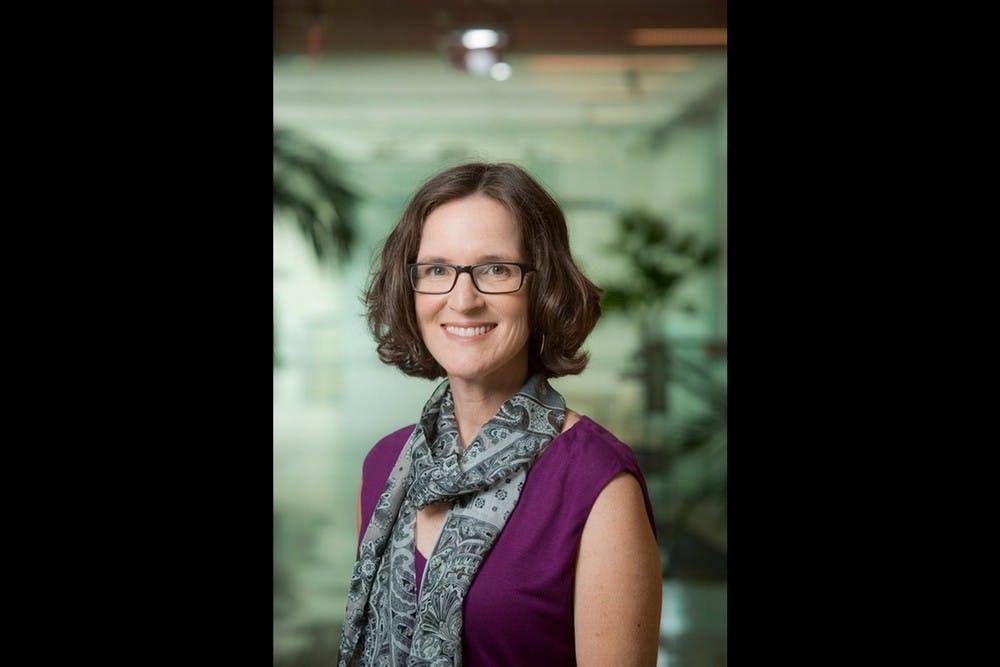Megan Mullin, associate professor of environmental politics, recently co-authored an article in the Annual Review of Political Science called "Climate Change: US Public Opinion." The article discusses Americans' attitudes toward the existence of climate change. The Chronicle spoke with Mullin about the article and her views toward climate change policy and opinion. This interview has been edited for length and clarity.
The Chronicle: What are the barriers to climate change action?
Megan Mulllin: Climate change is a complex, far away problem that is huge in scope. It's easier to ignore it than to take it on. One thing we need to do is stop focusing on this belief part of climate change—there's a lot of attention on the percentage of people who don't believe that climate change is real or don't believe it's human-caused, etc.
We know that it's real and that it's human caused. We should stop asking people these questions about belief and we should stop pitching [climate change] in terms of a belief, but instead just go into our conversations with politicians with the assumption that this is a real problem and ask, "What are you going to do about it?"
As big a challenge as public opinion is, the low priority [placed on climate change from] even the public who does believe that climate change is a problem.
TC: Why isn't climate change a higher priority?
MM: It is hard to know what to attribute to climate change. In the U.S., the effects of climate change are really mostly more extreme versions of what we already know. We know about hot summers—they're just getting hotter. We know about severe rainfall—we're just experiencing it more more severely. It's hard to say that there's this specific event or problem that's different from what we had before, which removes some of the urgency from people's perception of the problem.
TC: What kinds of policy discussions can we have?
MM: Some of [them] are these attributions that I just talked about—pointing out when we get these types of extreme events that these really are harmful and what the cost of those events are. For adaptation, sometimes the conversation goes something like "this flooding is costing human lives, we see that these floods are happening more frequently, we need to prepare ourselves better."
But mitigation—actually reducing our emissions—is harder. We really do need to actually talk about climate change then. It's the next step of saying that the reason we're having more frequent and more intense floods is because of climate change.
TC:. What's your response to people who are skeptical that the political process can help tackle climate change?
MM: There are people who are waiting for a big social movement on climate change similar to what we saw that prompted a lot of the national environmental legislation in the early 1970s. I don't see that happening anytime soon. There are a lot of ways that climate change is not an issue that motivates the numbers of people we would need to see to join a social movement. And I also think that the political machine is not going to be as responsive to a social movement as it was at that time.
TC: You mention in a recent article you co-authored that some of the policy actions aimed at preventing climate change are not very politically rewarding. Can you speak on how we can change the incentives so that climate change policy is a higher priority for politicians?
MM: The time horizon for climate change is so long and politicians operate within these short elective cycles. And if we're successful at addressing this problem, there's not much that you could point to. What we're trying to do is avoid the disaster, which means that if we succeed then we have nothing to point to. You can't really point at a flood that didn't come. Our traditional political reward structures aren't really set up for this kind of problem.
This actually sends me into thinking that our strongest hope is through elite politics: the large donors, corporations and wealthy people who actually have a lot at stake with respect to climate change and may have higher levels of knowledge about the risks. Let’s look to them to help lead politicians to solutions.
TC: Recently, mayors and universities have spoken out against Trump's decision to withdraw the U.S. from the Paris Climate Accord. What effect will that have?
MM: It's a great development, though we need to be cautious in our optimism about how much it can do. I think that they are going to really start facing some challenges in the implementation of it— actually working together starts to get really hard. But in publicly committing themselves, they create some accountability to one another to continue moving forward. Most importantly, the more these universities and cities are working in this area, the more they're creating market opportunities that can spill over to other places.
TC: What kinds of actions would you like to see from government?
MM: Climate change is not a single solution kind of thing. Everybody needs to throw their best everything at it. The easiest solutions are to promote technological change, which happens through public incentives as well as through the private marketplace. But we also need to be thinking about behavior change. If we want people not to drive as far in cars by themselves, then we need to be offering affordable housing opportunities close to cities and close to where people work.
Get The Chronicle straight to your inbox
Signup for our weekly newsletter. Cancel at any time.

